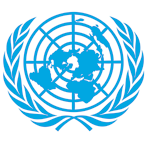| Date / Time |
Event |
Monday
8 October
10–11:30 a.m.
|
Keynote address by Dr. Edmund Phelps, Department of Economics, Columbia University (2006 Nobel Prize winner in Economics)
Dr. Phelps’ Nobel award-winning work on employment, capital accumulation and intergenerational trade-offs has had tremendous impact on macroeconomic policy-making. His keynote address will share his perspectives on how his theories can be applied to economic policy in developing countries in order to improve their development outcomes.
|
Friday
19 October
10 a.m.–1 p.m.
|
Triennial Comprehensive Policy Review (TCPR) Round table on “How can the UN development system optimally respond to different countries’ needs and priorities in their efforts to achieve the MDGs?”
The objective of this Round table is to introduce fresh perspectives on “coherence” in the work of the UN development system at the country-level that will be useful input to the negotiations of the 2007 TCPR resolution. It will be an opportunity to address some of the interface between the TCPR and recommendations from the High-level Panel on System-wide Coherence, and also discuss progress in the ‘Delivering as One’ pilot countries.
Panelists:
H.E. Mr. Jean-Max Bellerive, Minister of Planning, Haiti
H.E. Sir John Sawers, Permanent Representative of the United Kingdom of Great Britain and Northern Ireland to the United Nations
Mr. Prosper Musafiri, Director General of Economic Planning, Ministry of Finance and Planning, Rwanda
Mrs. Albana Vokshi, Director of the Department for the Coordination of the Foreign Strategies and Assistance at the Council of Ministers, Albania
Mr. Henri Raubenheimer, Director, Economic Development, Department of Foreign Affairs, South Africa
Mr. Bruce Jenks, Assistant Secretary-General and Director, Bureau for Resources and Strategic Partnership, UNDP
|
Thursday
25 October
3–5 p.m.
|
Panel discussion on “Bringing the Doha Development Round to a Successful Conclusion”
Panelists will present their views on the Doha Development Round of WTO negotiations and how to ensure that the negotiations lead to a positive outcome.
Panelists:
Mr. Pascal Lamy, Director-General, WTO
Mr. Supachai Panitchpakdi, Secretary-General, UNCTAD |
Thursday,
1 November,
3-6 p.m.
|
Panel discussion on the UN Global Compact
This panel will highlight the progress to date of the UN Global Compact – the UN’s voluntary corporate citizenship initiative, which aims to make global markets more sustainable and inclusive. Particular attention will be paid to the outcomes of the UN Global Compact Leaders Summit, which took place at UN Headquarters in Geneva on 5-6 July 2007. The Summit, chaired by Secretary-General Ban Ki-moon, gathered over 1000 chief executive officers, government ministers, heads of civil society and labour organizations from all over the world - making the Summit the largest event ever convened by the UN on the topic of corporate citizenship.
Panelists:
Mr. B. Muthuraman, Managing Director, Tata Steel, India
Mrs. Chen Ying, Deputy Director General, China Enterprise Confederation, China
Professor José Sergio Gabrielli de Azevedo, President and CEO, Petrobras, Brazil
Mr. Toshio Arima, Director and Executive Advisor to the Board, Fuji Xerox, Japan
Mr. Bunmi Akinremi, Deputy, United Bank for Africa, New York Branch, Nigeria
Mr. Talal Abu Ghazaleh, Chairman and CEO, Talal Abu-Ghazaleh Organization, Egypt
Sir Mark Moody-Stuart, Chairman of Anglo American, United Kingdom
|
Wednesday
7 November
10 a.m.–1 p.m.
|
Panel discussion on “The Helsinki Process on Globalisation and Democracy: The value-added of multi-stakeholder cooperation in the governance of globalization”
Since its launch in 2002, the Helsinki Process on Globalisation and Democracy, co-chaired by the governments of Finland and Tanzania, has strived to promote more democratic governance of globalisation by fostering cooperation among different stakeholders and between the North and South. The Helsinki Process panel aims to discuss concrete examples and best practices of multi-stakeholder cooperation in order to further promote cooperation among different actors within the UN, and in particular within the Second Committee.
Co- Chairs:
Mr. Erkki Tuomioja, Former Minister for Foreign Affairs and Co-chair of the Helsinki Process, Finland
Dr. Augustine P. Mahiga, Permanent Representative of the United Republic of Tanzania to the United Nations
Panelists:
Ms. Mary Robinson, President, Ethical Globalisation Initiative
Mr. William Pace, Executive Director, World Federalist Movement, Institute for global Policy
Mr. Rick Samans, Managing Director, World Economic Forum
Mr. Jomo Kwame Sundaram, Assistant Secretary-General for Economic Development, UN DESA
Moderator:
Mr. Alex Taylor, Journalist, BBC |
Monday
12 November
4–6 p.m.
|
Panel discussion on “Financing for gender equality within the context of follow-up to the Monterrey Consensus”
This panel will examine progress in mobilizing domestic and international resources for the promotion of gender equality, in line with the priority theme of the 52nd session of the Commission on the Status of Women in 2008 and as input to the follow-up conference to the Monterrey Consensus. Panelists will provide their perspectives on the outlook for financing for gender equality, including the effective use of gender-responsive budgeting.
Panelists:
Dr. Isabella Bakker, Professor of Political Science, York University, Toronto, Canada
Mr. Mohamed Chafiki, Director, Financial Forecasts, Ministry of Finance and Privatization, Morocco
Ms. Stephanie Seguino, Professor of Economics, University of Vermont, Burlington, Vermont
Ms. Mariama Williams, International economics and trade consultant and Adjunct Associate at the Center of Concern, Washington, D. C.
Discussant:
Mr. Manuel Montes, Chief, Policy Analysis and Development Branch, Financing for Development Office, UN |
Tuesday
13 November
3–6 p.m.
|
Panel discussion on “Addressing Climate Change in the context of National Sustainable Development Strategies”
This panel will address the challenges of climate change from the broad perspective of sustainable development. It is increasingly recognized that climate change is fundamentally a sustainable development challenge, with its impact on the ecosystems, social and economic development, and sustainable livelihood. Responses to mitigate and adapt to climate change will therefore need to be integrated into national sustainable development strategies.
Panelists:
Mr. Mohan Munasinghe, Vice-Chair, Intergovernmental Panel on Climate Change (IPCC), and Chairman, Munasinghe Institute for Development (MIND)
Mr. Taufia Patolo, Government Chief Accountant, Tuvalu
Mr. Christian Brodhag, Inter-Ministerial Delegate to the CSD, Ministry for Economy and Sustainable Development, France
Ms. Le-Yin Zhang, Lecturer, Development Planning Unit, University College, London, UK |
Friday
16 November
10 a.m.-1 p.m.
|
Panel discussion on “Moving out of aid dependency”
The panel will look at the long term goal of moving countries out of aid dependency and making aid more effective. The panel will discuss some examples of countries which moved out of aid dependency and draw lessons for the current debate on how to make aid more effective.
Panelists:
Mr. Poul Engberg-Pedersen, Director General, Norwegian Agency for Development Cooperation
Mr. Roy Culpeper, President, North-South Institute, Ottawa, Canada
Mr. Michael Atingi Ego, Executive Director, Bank of Uganda, Uganda
Ms. Irma Adelman, Professor, Berkeley University, California
Mr. Debapriya Bhattacharya, Ambassador and Permanent Representative to the United Nations in Geneva, Bangladesh
Discussant:
Ms. Benu Schneider, Chief, Debt, Finance and Systemic Issues Unit, Financing for Development Office, DESA
|

